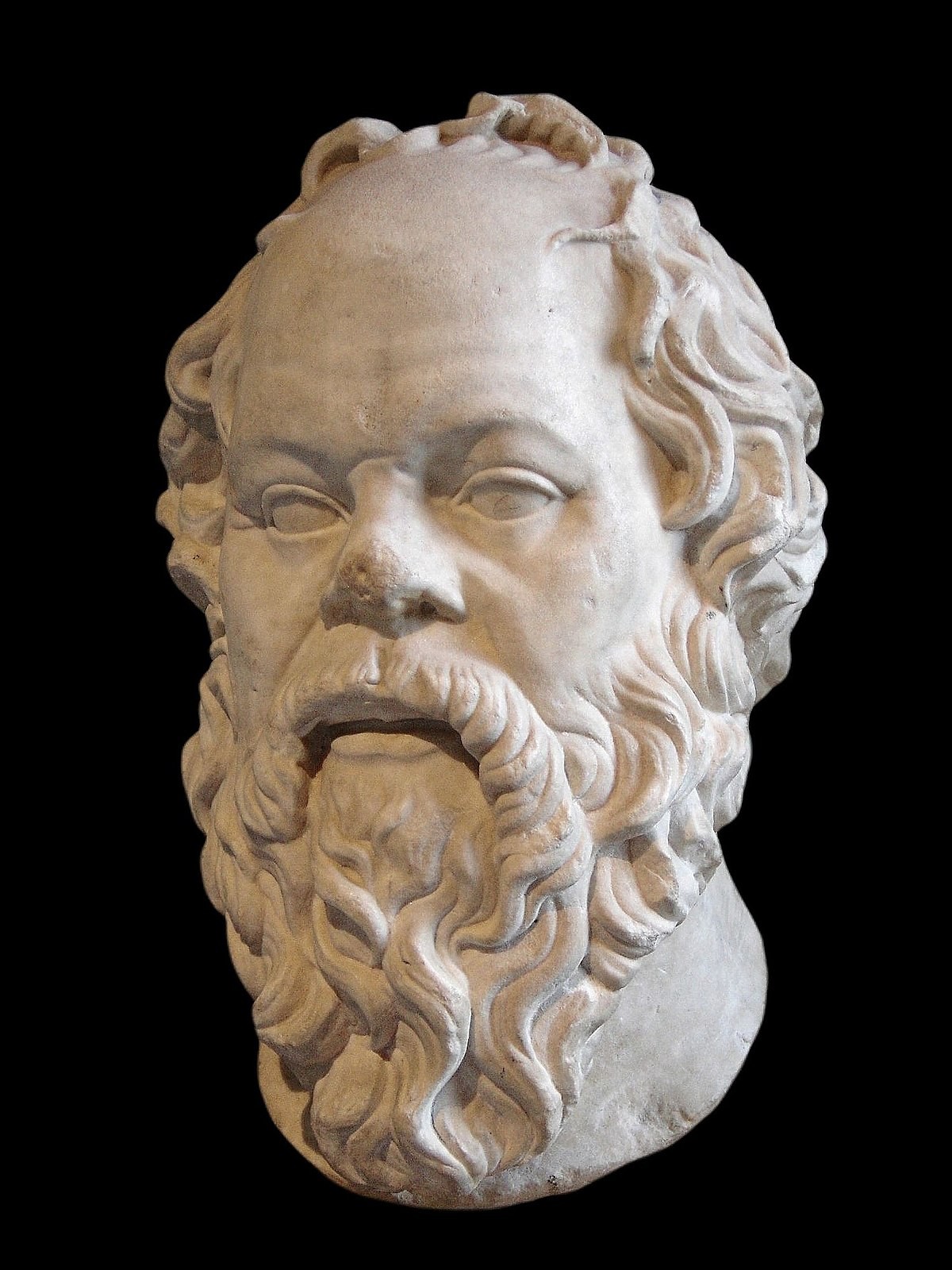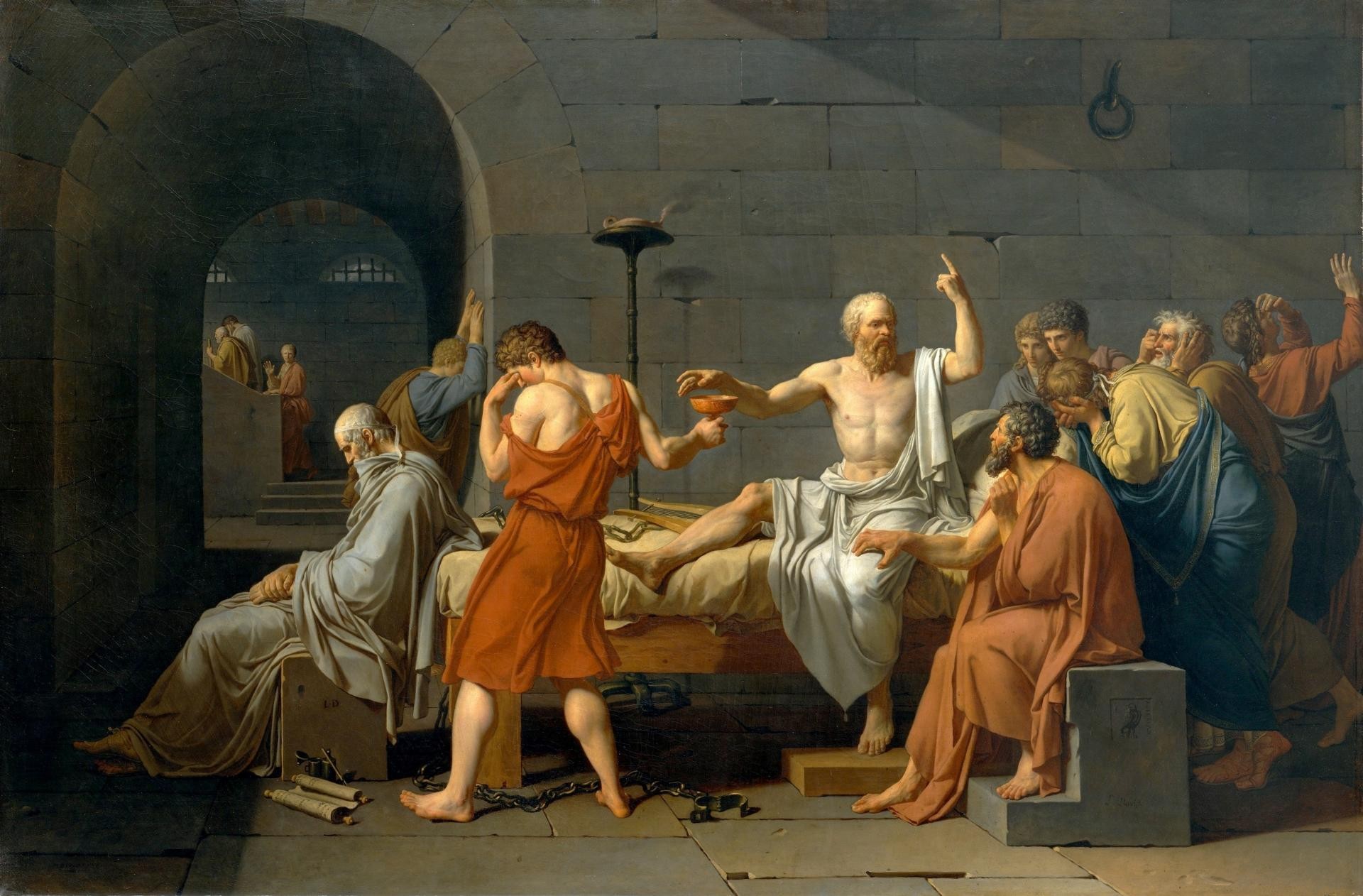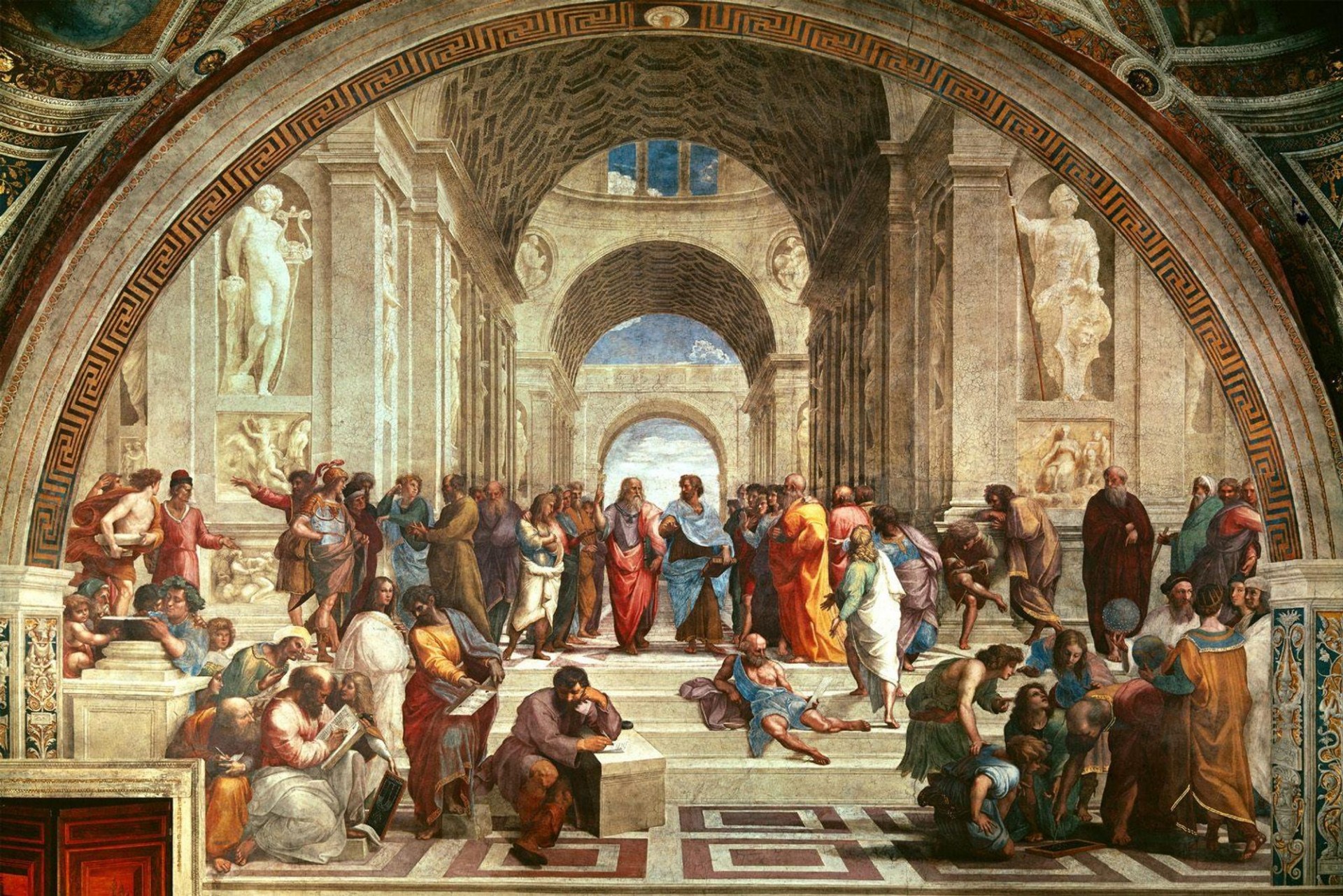The Trial and Death of Socrates

Socrates, revered founder of the Western philosophical tradition, is better understood as a mythic philosopher than as a historical figure. He lived in Athens, from 469 until his execution in 399 BCE. He never wrote a word -- our knowledge of the philosophy of Socrates depends absolutely on the records of his students and contemporaries. Socrates was certainly a strange, eccentric personality: he wandered about in old, dirty clothes, without shoes, and played the part of the destitute vagrant. By all accounts, he was considered rather ugly. Though enormously respected by students and admirers, he also had powerful enemies, who accused him of two weighty crimes: atheism and the corruption of the youth.
"Euthyphro", the first episode in Plato's Trial and Death of Socrates, takes place outside the courthouse in Athens. On his way to trial, Socrates encounters Euthyphro, a confident Athenian preparing to sue his own father. Naturally, Socrates stops to question Euthyphro regarding the nature of piety.
In Plato's dialogues, Socrates draws out seemingly simple discussions, always in search of true forms. What is Socrates asking for then, when he asks "what is piety?" Or in the words of JAY-Z, Is Pious pious 'cause God loves pious? How would you characterize Socrates' method of seeking the truth?

In "Apology," Socrates speaks before the jurors of Athens. Whilst confronting the charges brought against him by Meletus, Socrates embarks on a famous discussion on the nature of wisdom.
What is human wisdom? How is Socrates wise?
In "Crito" and "Phaedo," Socrates and his disciples grapple with the jury's verdict. Faced with the opportunity to flee Athens and escape execution, Socrates discusses his relationship with the state.
Why does Socrates reject Crito's offer?

The life and death of Socrates are enshrined in the works of Plato, Socrates' pupil. Plato lived in Athens from 429 to 347 BCE, where he founded his Academy. Plato, in turn, trained another major figure of the Western Tradition: Aristotle. Teacher and student are depicted above, in Raphael's iconic The School of Athens. (Perhaps this setting looks strangely familiar). In his countless dialogues, Plato expresses an extraordinary fascination for forms -- the eternal, essential abstractions underlying all earthly objects.